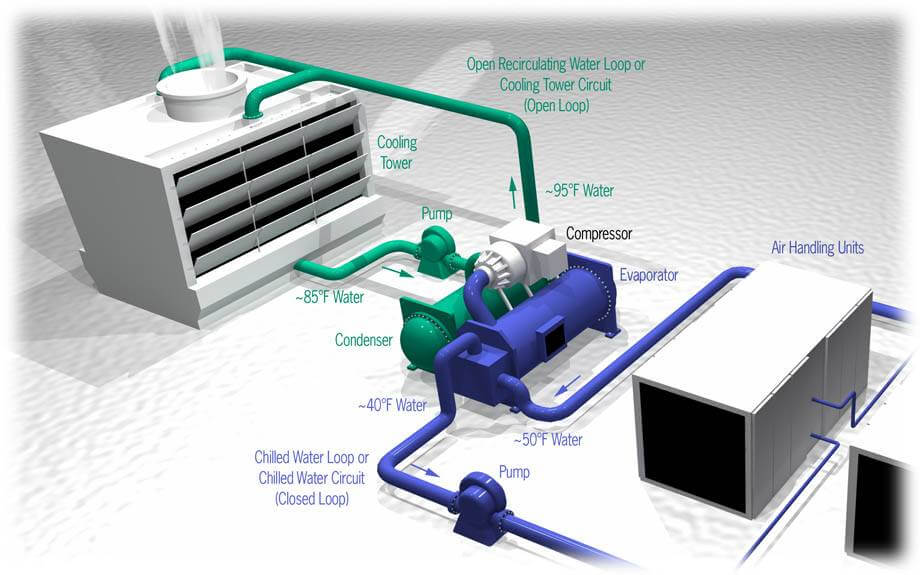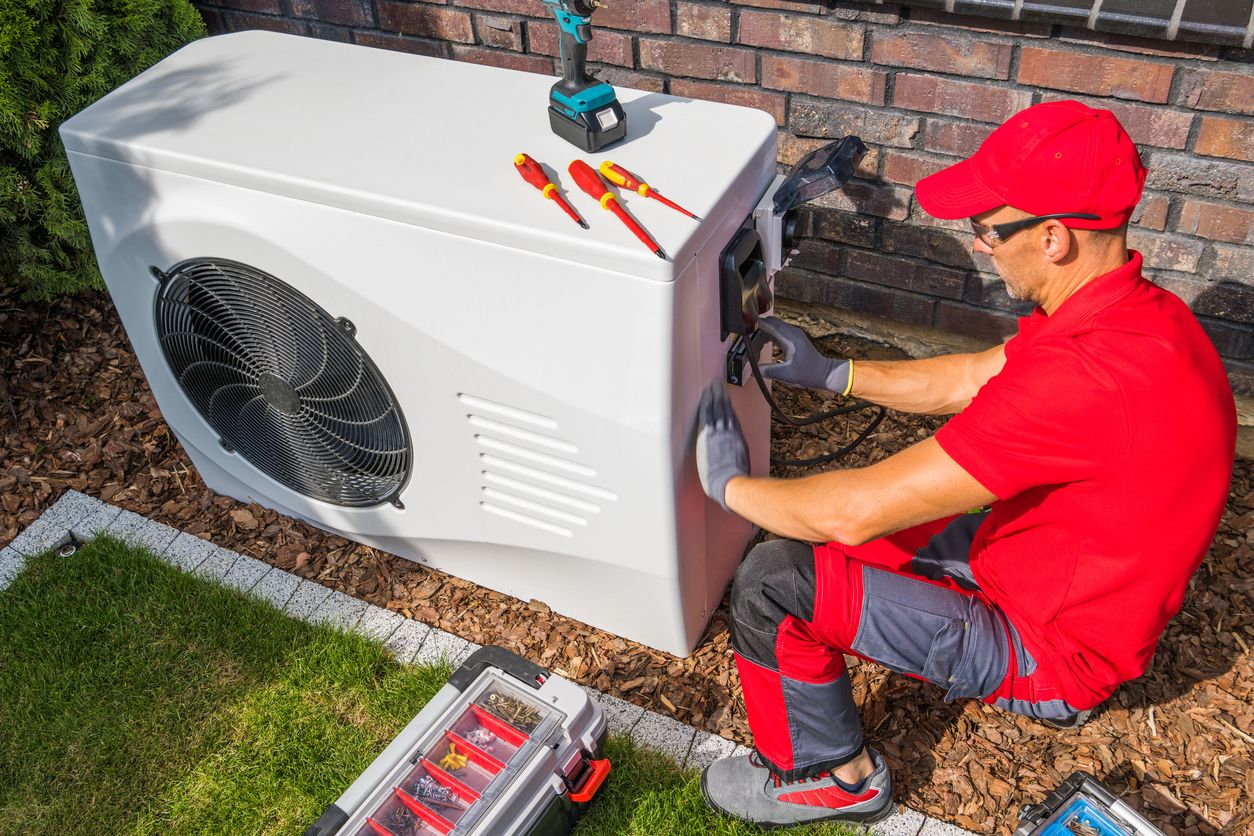Affordable Furnace Installation For Comfortable Homes In Nearby Neighborhoods
Your Guide to Choosing the Right HVAC System for Your Requirements
Selecting an ideal Cooling and heating system is a critical decision that can dramatically impact convenience and power performance in your home. Furthermore, recognizing the various types of systems offered and their power scores can help guide your choice.
Recognizing HVAC System Types
When choosing a cooling and heating system, it is vital to recognize the different types offered to satisfy your certain demands. The key classifications of HVAC systems consist of main air conditioning systems, ductless mini-split systems, heatpump, and furnace systems.
Central air systems are designed to cool multiple spaces using ductwork to disperse conditioned air. They are optimal for larger homes needing consistent temperature level control. Ductless mini-split systems, on the other hand, give adaptability and effectiveness, as they permit zoning capacities, enabling individual area temperature policy without the demand for ductwork.
Warmth pumps operate by transferring warmth instead than creating it, making them an energy-efficient alternative for both heating and cooling. Alternatively, heating system systems use burning to produce warmth, using either gas, oil, or electrical energy.
Each system has unique benefits and factors to consider, including setup requirements, upkeep, and general expenses. Recognizing these kinds will certainly aid house owners make educated decisions based upon their details requirements, environment, and budget plan restrictions, eventually making sure optimal comfort and performance.
Assessing Power Effectiveness
Power performance is a vital element in the selection of a Heating and cooling system, as it straight affects both energy expenses and environmental sustainability. The Seasonal Power Effectiveness Proportion (SEER) and the Heating Seasonal Performance Element (HSPF) are important signs for air conditioning systems, representing their efficiency over a typical air conditioning and home heating season, specifically.
Furthermore, seek systems that have actually gained the power celebrity tag. This certification symbolizes that the equipment meets stringent energy efficiency standards set by the united state Environmental Protection Firm. Take into consideration the system's variable-speed innovation, which enables much more efficient procedure by readjusting the result to match need, better enhancing power savings.
Additionally, appropriate insulation and air duct sealing can substantially influence the system's overall efficiency. In summary, picking an energy-efficient cooling and heating system not just reduces your energy expenses but additionally adds to a much more lasting environment, making it an essential consideration in your investing in procedure.
Assessing System Size
Selecting the ideal dimension for a heating and cooling system is vital to ensuring optimum performance and efficiency. A small system may battle to preserve wanted temperature levels, causing raised damage, higher power usage, and diminished comfort. Conversely, an oversized system can bring about quick biking, which not just causes ineffectiveness yet also affects humidity control and air top quality.
To analyze the ideal sizing, it is crucial to conduct a tons estimation, which considers elements such as the square video of the area, insulation levels, window dimensions, and local environment conditions - hvac. This computation aids determine the British Thermal Units (BTU) needed for heating and cooling. In addition, it is vital to account for particular needs, such as the number of owners and the presence of heat-generating devices

Installment Costs and Spending Plan
An extensive understanding of installment expenses is vital for organizations and homeowners taking into consideration a brand-new cooling and heating system. The total expense of setup can vary widely based on several elements, including the kind of system, the complexity of installation, and the location of the property. On average, installment expenses can vary from $3,000 to $10,000, relying on the system's dimension and performance.
When budgeting for a HVAC system, it is important to think about not just the first installment costs however additionally any kind of added costs that may develop, such as ductwork modifications, electric upgrades, or licenses. Additionally, it is a good idea to obtain numerous quotes from certified HVAC service providers to guarantee affordable rates.
House owners should view it also factor in the possible long-lasting cost savings related to energy-efficient systems. While the upfront expenses may be greater, energy-efficient versions can bring about substantial cost savings on energy expenses over time.

Upkeep and Durability Factors To Consider

Proper upkeep includes regular evaluations, filter replacements, and cleaning of air ducts and coils (hvac). Overlooking these tasks click for more can bring about lowered efficiency, boosted energy costs, and premature system failure. Property owners ought to additionally take into consideration the availability of solution contracts, which commonly offer scheduled maintenance and top priority service, making sure that the system continues to be in peak problem
Longevity differs by system kind; for instance, well-maintained air conditioning devices can last 15 to two decades, while heatpump might have a life-span of 10 to 15 years. Picking a system with a strong online reputation for dependability, together with buying regular maintenance, can considerably improve the system's toughness. Furthermore, selecting higher-efficiency designs might result in long-term financial savings on power expenses, balancing the preliminary financial investment gradually.
Final Thought
To conclude, selecting an appropriate heating and cooling system necessitates careful consideration of various variables, including system kinds, power efficiency, and size. Examining installment prices and long-term maintenance demands is necessary for guaranteeing optimal performance and cost-effectiveness. Involving with cooling and heating specialists can offer useful understandings and tailored suggestions that align with particular heating and cooling requirements. Ultimately, more helpful hints a knowledgeable choice will certainly boost convenience and efficiency in domestic atmospheres while making best use of energy financial savings.
Picking an appropriate A/c system is a crucial decision that can considerably impact convenience and energy efficiency in your home.Energy effectiveness is an important aspect in the option of a Heating and cooling system, as it directly influences both utility prices and ecological sustainability. The Seasonal Power Efficiency Proportion (SEER) and the Heating Seasonal Performance Element (HSPF) are vital indications for air conditioning systems, representing their performance over a regular cooling and heating season, specifically. Picking a system with a strong online reputation for dependability, along with investing in normal maintenance, can substantially boost the system's longevity.In conclusion, choosing a suitable A/c system requires mindful consideration of different factors, including system kinds, power performance, and size.